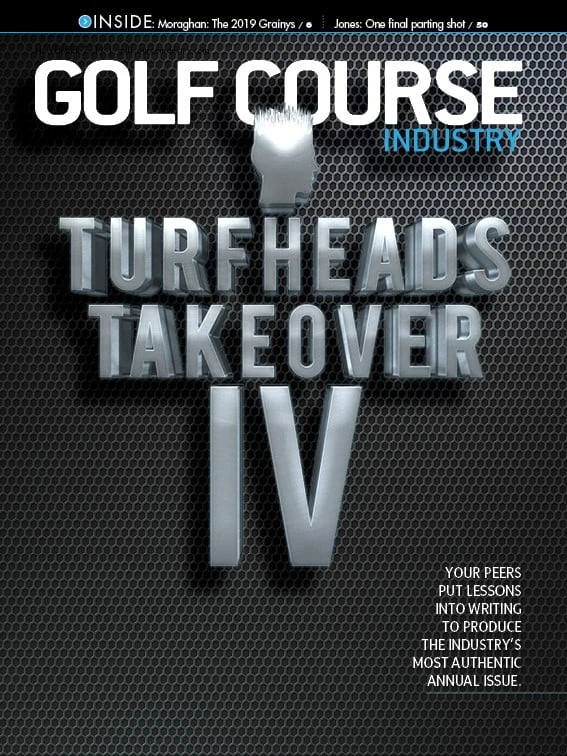
The other evening, I saw something posted on Twitter by a fellow golf course superintendent I really liked. It was a simple yet informative post with photos attached. I could tell he was “talking” to his membership. He’s the golf course superintendent of a private country club.
After hitting the “like” button, I switched over to DM and dropped him a quick note. I told him I admire the work he’s doing and enjoy his feed. He shares great content and sets a great example for all of us superintendents.
He quickly replied, thanking me for the kind words. What he said next surprised me: he was considering quitting Twitter because on too many occasions he’s received replies from other superintendents or industry colleagues negatively commenting on his posts. The comments mostly question what he’s doing. One individual stated what he was doing was incorrect and predicted it would most likely fail. He didn’t want his membership to see and read the negative comments about this work and decision-making from industry colleagues, so he deleted the original posts.
I joined the Twitter community six years ago following a conversation with my green committee chairman. With the average age of our membership continuing to get younger, we believed Twitter would be a great way to post course-related information in real time. So, from my outset, the target audience has always been the members at my facility.
Granted, it didn’t take long for folks in the turf world to find me and my following grew. I have embraced the information sharing and conversation that has ensued. I even compare it to the “World’s Largest Local Association Meeting,” all from the comforts of your sofa.
But occasionally a few folks still get a little overzealous in the proverbial sandbox. I too have received comments or questions at times from colleagues on my posts, and my first thought is, “Really?!” My personal philosophy has always been to “like” replies as a way to acknowledge the person who commented, so if you ever see a reply I failed to “like,” it’s probably because I didn’t appreciate your remarks in the public forum.
A couple of years ago I received a visit from a trusted colleague and friend. We’ve known each other for more than 20 years, meeting at university. He’s a former superintendent absolutely killing it on the sales side for one of the big three equipment distributors. He stopped by to tell me there were some local folks jealous and felt my Twitter posts contained too much bragging.
I promptly thanked him for sharing and told him the next time he encountered those folks to politely tell them I was sorry, but they are not my target audience. If a fellow superintendent or industry professional sees my post and learns something from it, or wants to engage and ask questions, that’s great. But the intent of the post is to inform the membership, not my peers.
Don’t get me wrong, it’s fun to engage in banter and sometimes a snarky remark can be funny. Heck, that same former committee chairman told me he thought the interactions of turf professionals on social media was like water cooler chit-chat in the office place. Because we’re out on the course all day, we don’t have the opportunity to walk down the hall and engage in a little banter with a colleague. Twitter affords us that opportunity.
But we need to pay closer attention to both the messenger and the intended audience of the message before we run the risk of embarrassing a peer in front of their owner, board, committee or members. I’ve engaged in numerous private conversations after seeing something on Twitter. I’ve learned a great deal from each of you in six short years, some of which I’ve implemented at my facility.
So, with the holidays fast approaching, I hope we can all agree to be nice to one another, because there is plenty of room in this sandbox for everyone. Just remember to hit “like” and continue to be supportive. And if you really feel someone might be making an error, shoot them a private direct message. I’m sure that person would be happy to learn without the indignity of you being off target.

Explore the December 2019 Issue
Check out more from this issue and find your next story to read.
Latest from Golf Course Industry
- From the publisher’s pen: Conscientious of a bigger role
- Bernhard and Company partners with Laguna Golf Phuket
- Terre Blanche showcases environmental stewardship
- VIDEO: Introducing our December issue
- Bernhard and Company introduces Soil Scout
- Nu-Pipe donates to GCSAA Foundation’s Centennial Campaign
- GCSAA enhances golf course BMP tool
- Melrose leadership programs sending 18 to 2026 GCSAA Conference and Trade Show





